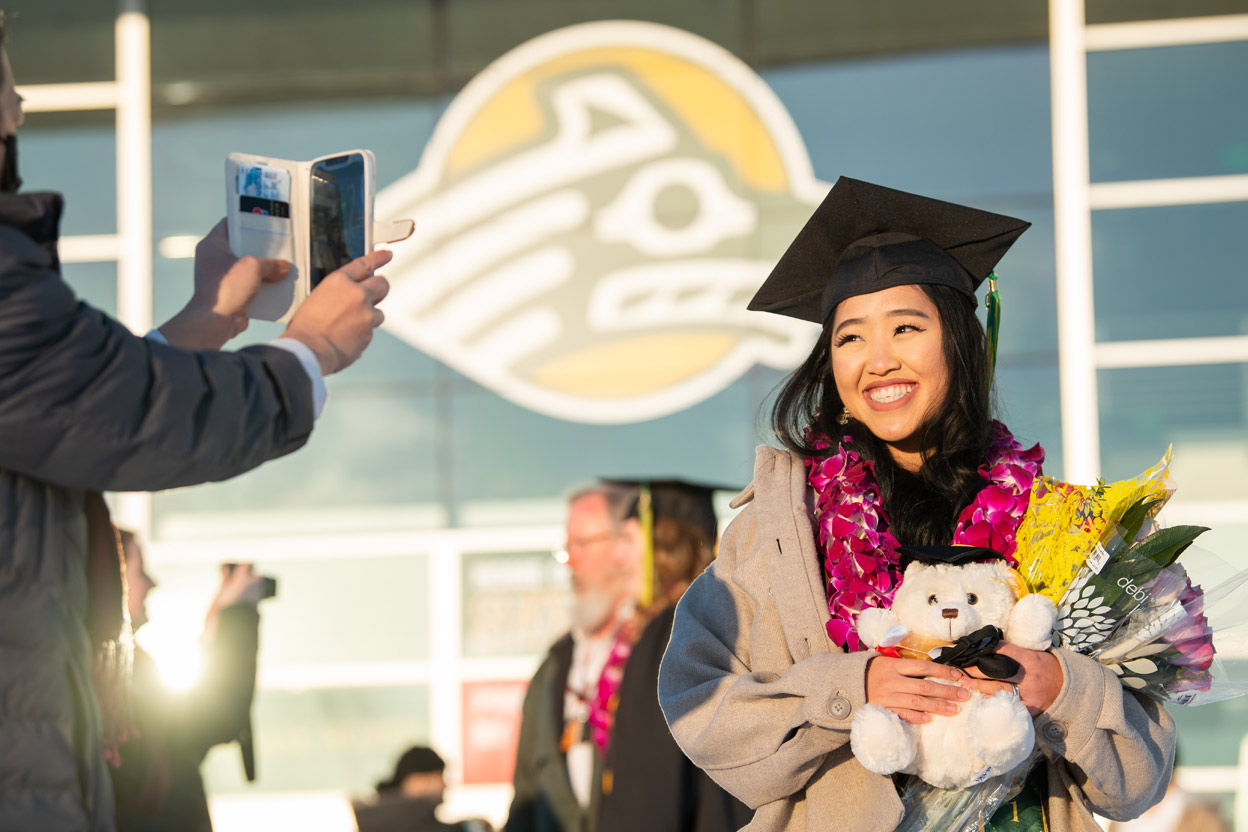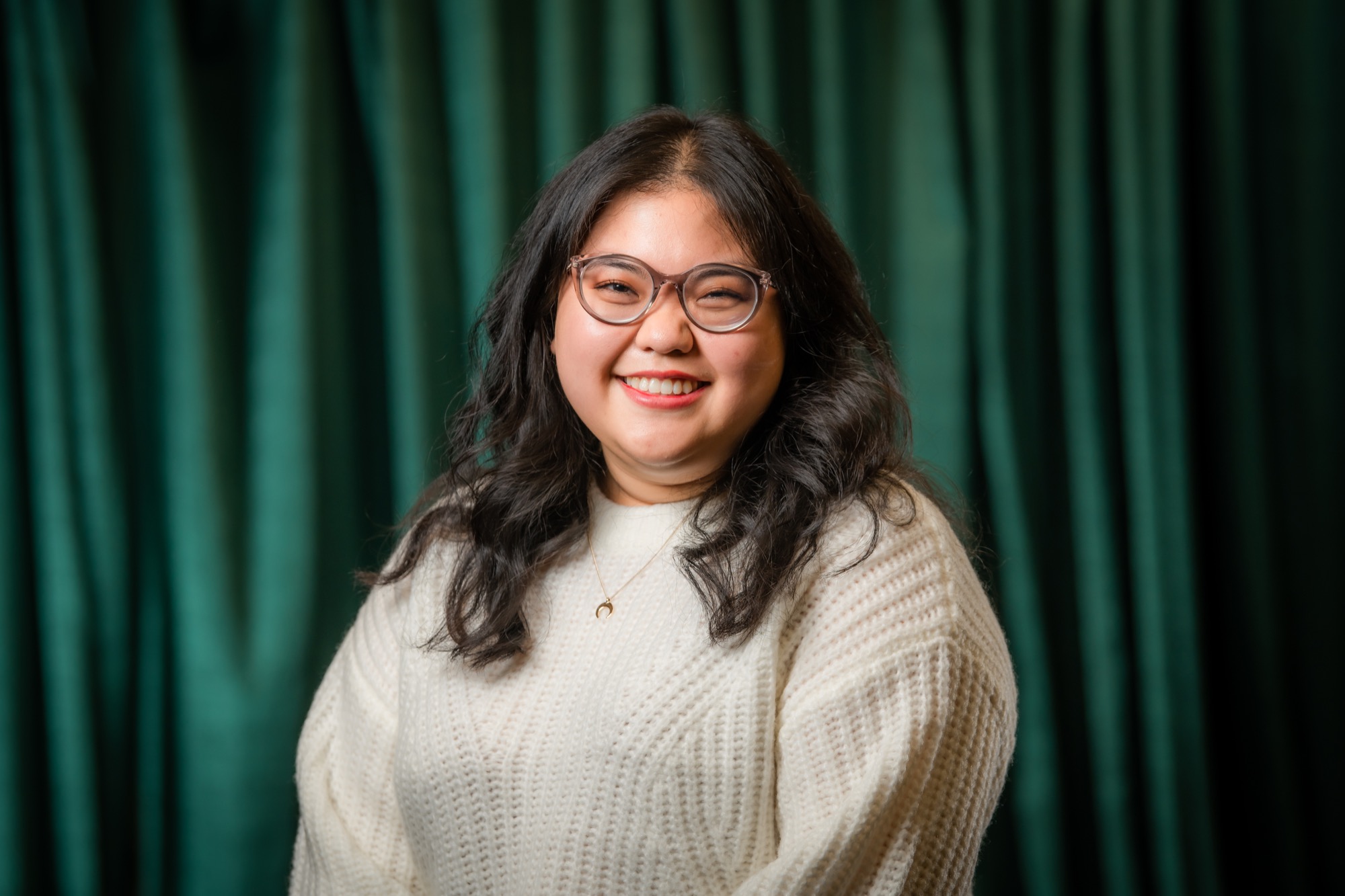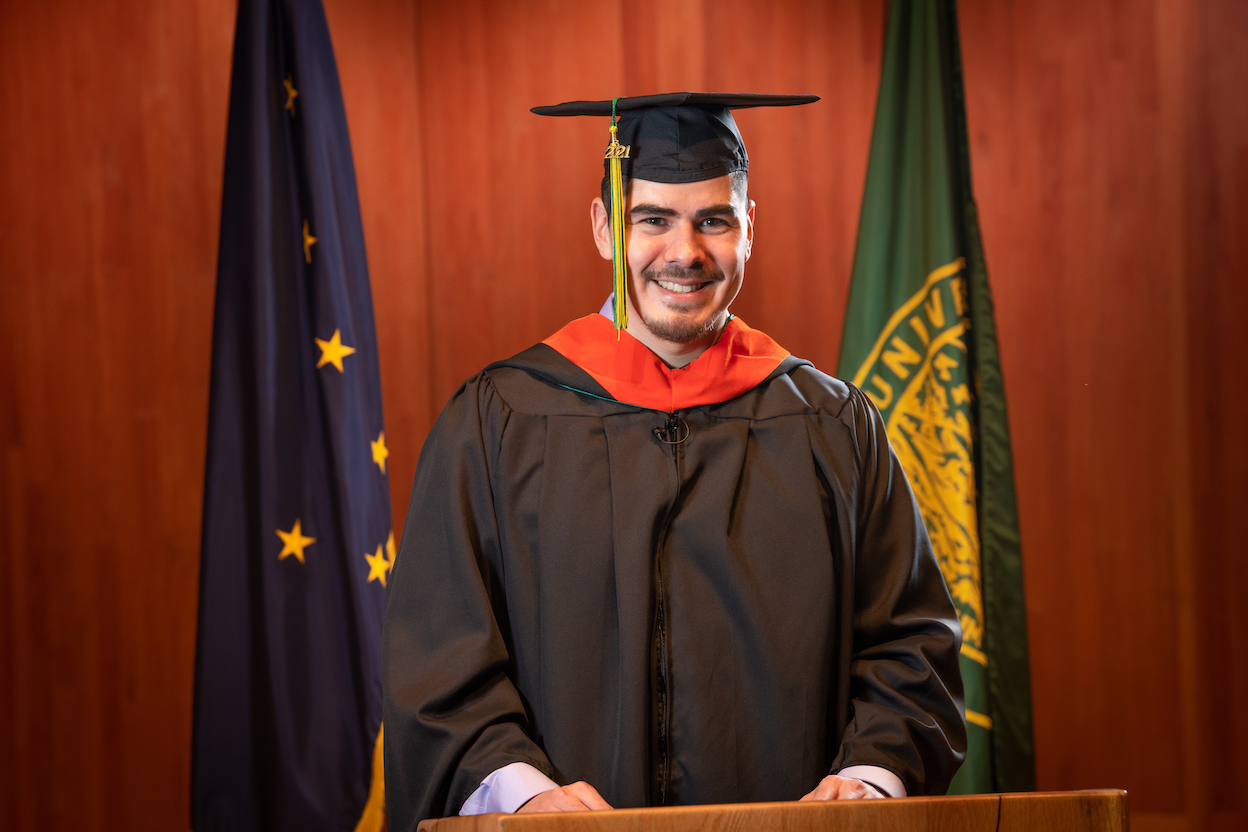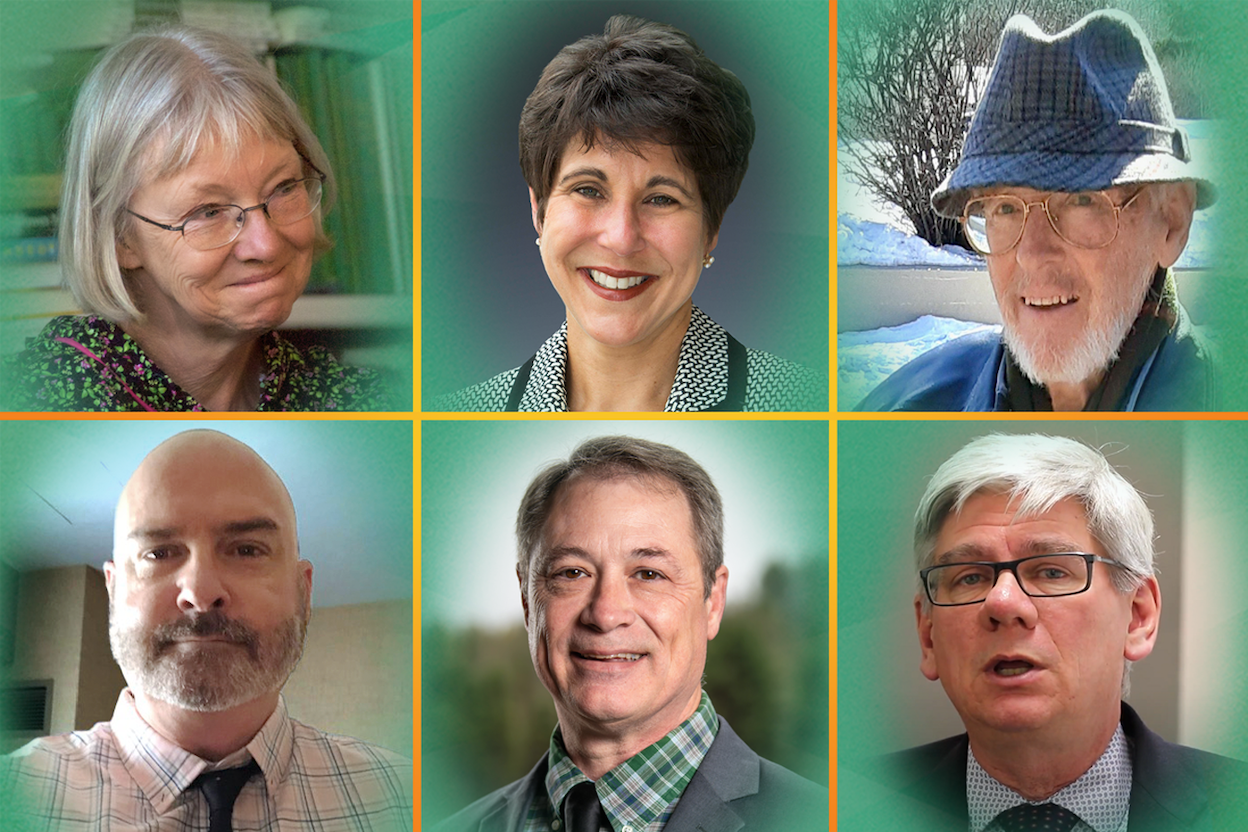Community of collaboration: UAA and UAF partner up on energy research
by Joe Selmont |
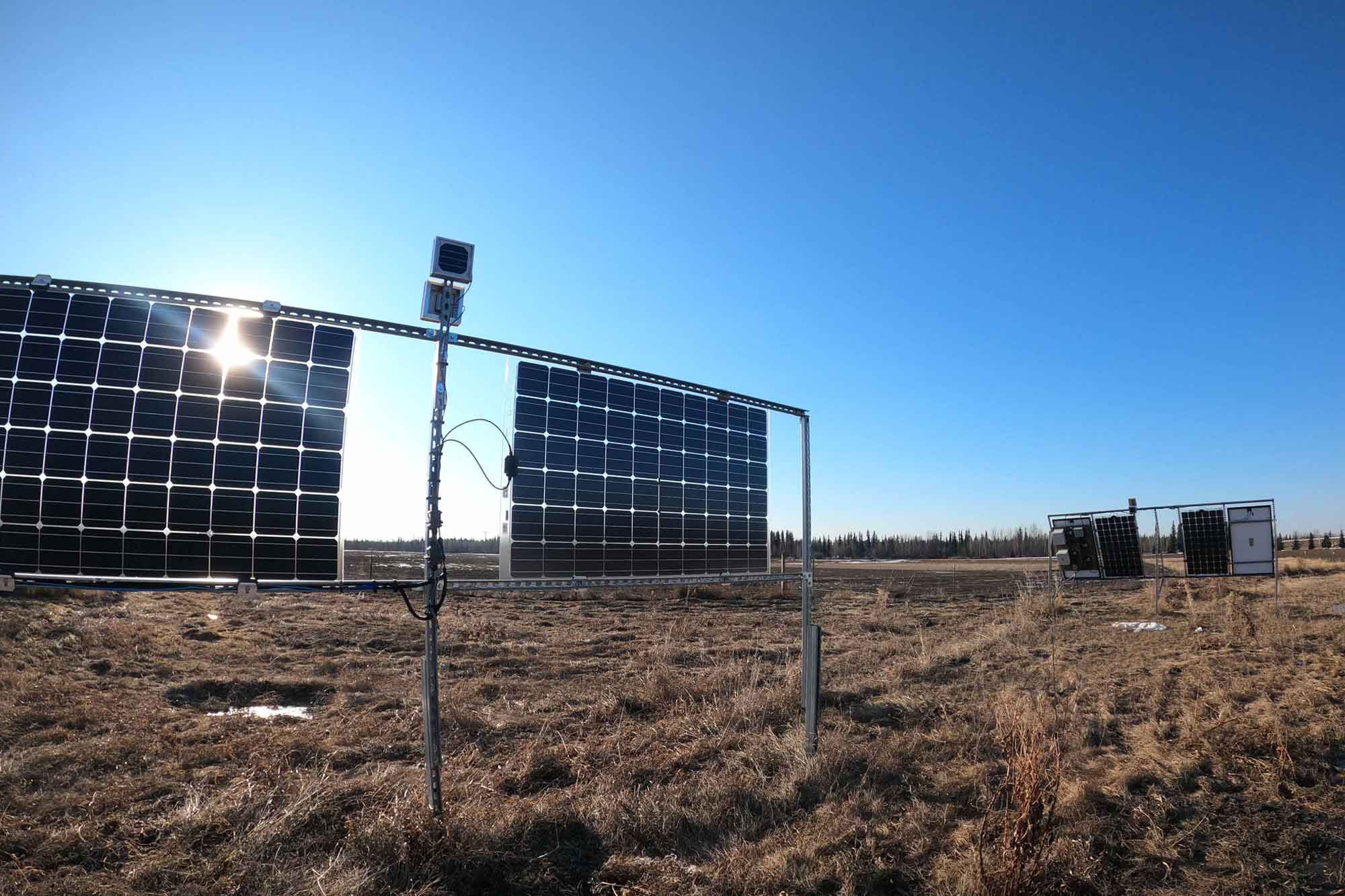
When research is portrayed in popular media, it’s often depicted as a lonely experience: the solitary scientist in their lab who single-handedly makes a big discovery. In the real world, research is an ongoing process that typically involves the labor, commitment and collaboration of entire communities.
For UAA mechanical engineering undergraduate Henry Toal, it has been a gratifying experience to join one of those communities. He works as an intern in the Anchorage office of the Alaska Center for Energy and Power (ACEP), a program based at the University of Alaska Fairbanks, where he has had the opportunity to contribute to several research projects.
Meaningful work
Toal didn’t always know he wanted to become an engineer. In fact, it wasn’t until his junior year of high school — when he stumbled across an online video about the roles of problem solving and critical thinking in the rapid improvement of wind turbine technology — that Toal realized he could become part of that progress.
“I remember thinking, that’s a really huge problem I’d like to help solve,” Toal said. “It’s funny how random moments like that are important when you look back at them.”
Fast forward to the present day, and Toal has spent the past two years assisting on ACEP projects that advance the adoption and application of sustainable and local energy systems in Alaska. His first project was to help develop prototypes for the Onsite Realtime Collection and Acquisition platform — or ORCA — a simple-to-install and easy-to-use data collection tool. The ORCA enables a better understanding of energy utilization in Alaska’s rural communities, where powerhouses are often older models incapable of storing long-term data. This, in turn, improves decision making when it comes to incorporating renewable energy sources like solar, wind and hydroelectricity.
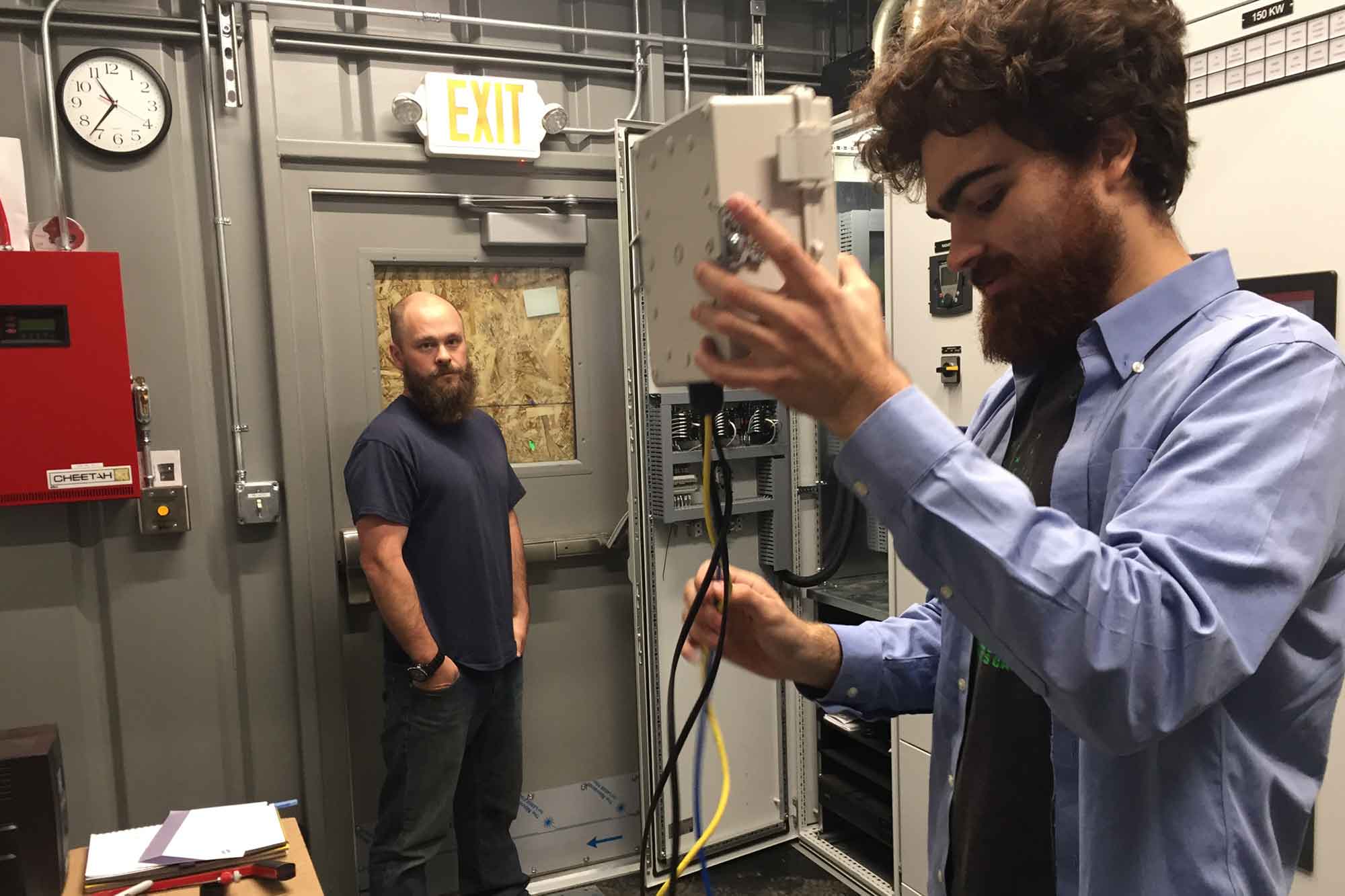
“Something I really appreciate about ACEP,” Toal said, “is they gave me the trust and support right from the start to do meaningful work. It feels good to know that what I contributed makes Alaska a better place. And the ORCA could really be used anywhere with older powerhouses — all across the world, really — so who knows what the impact will be?”
Since his efforts on the ORCA, Toal has participated in two more ACEP projects. In the spring of 2020, Toal served as the lead writer on a technical report that assessed the potential effectiveness of installing solar panels on UAA’s campus. Toal simulated all the buildings at UAA in a program called Aurora Solar, which integrates 3D modeling, satellite imagery and various data related to solar energy generation, such as irradiance, elevation and shading. Several UAA departments, including Facilities & Campus Services and the student-led Green Fee Board, are now using this ACEP report to help plan the next phases of solar panel installation.
Most recently, Toal has been researching and implementing quality control algorithms for solar energy and corresponding data collected at the solar test array on UAF’s campus. While quality control algorithms have already been developed by the National Renewable Energy Laboratory, they haven’t been optimized for the far north.
“Basically,” Toal said, “we needed to tweak the algorithms for Alaska’s higher latitudes. There are lots of odd reasons for bad data — a weird cloud or a dirty panel, for example — and these algorithms help us pull out that bad data.”
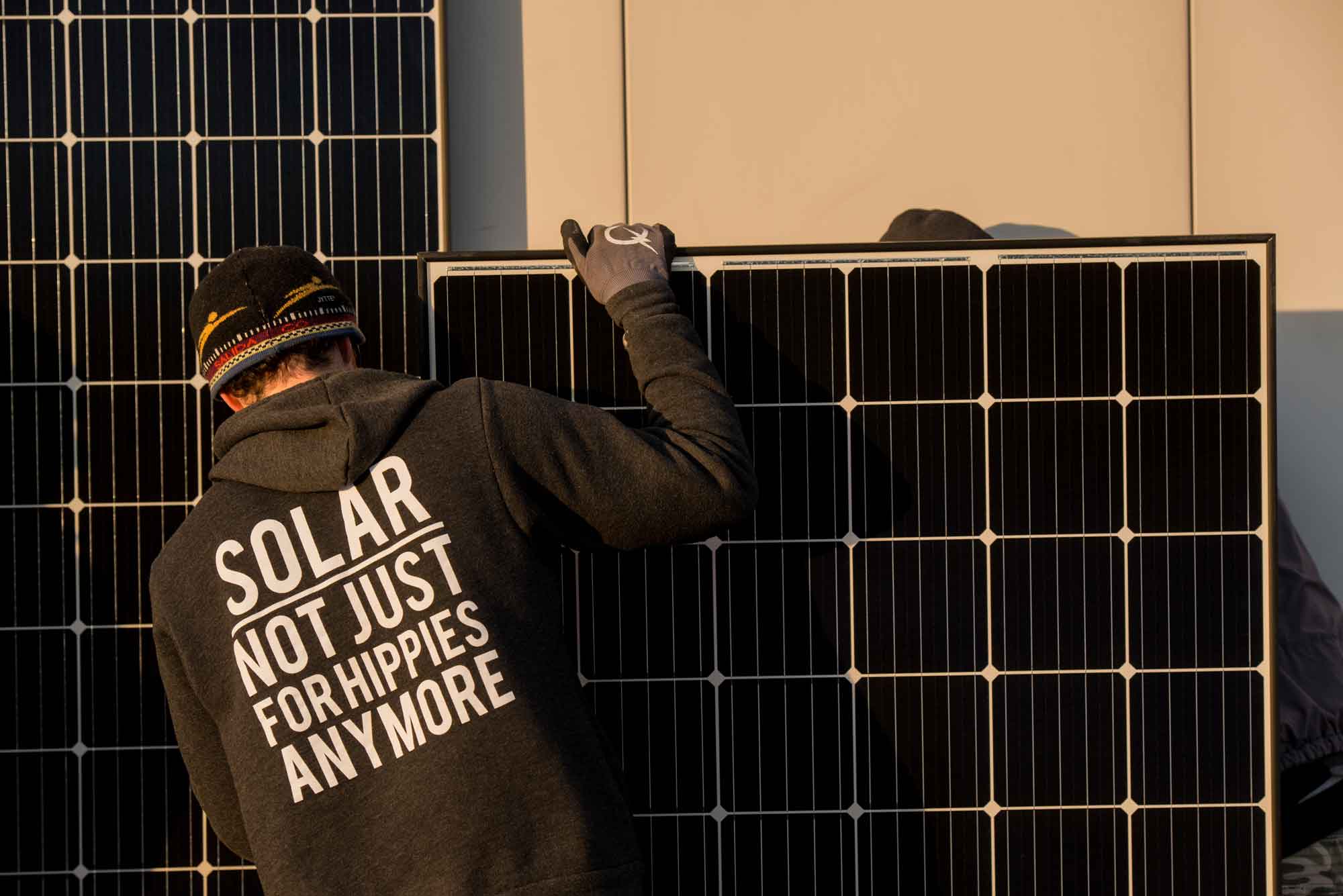
The Alaska Center for Energy and Power
It may come as a surprise that a UAA student has spent years working with a UAF center, but partnerships across the UA system’s three universities are actually not that uncommon.
Dr. Erin Whitney, the manager of ACEP’s Solar Technologies and Data Collection & Management programs, said, “One of the compelling aspects of ACEP is that we work all around the state, and we have small offices in both Anchorage and Juneau in addition to the mothership in Fairbanks.”
Whitney, whose office is located at UAA, spoke about the many collaboration opportunities that have opened up simply by co-locating UAF and UAA personnel in the same facilities. “We collaborate with UAA’s Institute of Social and Economic Research (ISER) as well as the College of Engineering and the chemistry department on a variety of projects,” she said.One ongoing collaboration pairs Whitney alongside two UAA researchers, Dr. Jen Schmidt from ISER and Dr. Aaron Dotson from the Department of Civil Engineering. Whitney, Schmidt, Dotson and the rest of their team explore the ways that renewable energy infrastructure installed on microgrids in small communities across the state can benefit food, energy and water security. The project, called MicroFEWs, has resulted not only in close-knit teamwork among UA researchers but also with community partners in Kongiganak, Tanana, Cordova and Igiugig.
Dotson, who is also UAA's vice chancellor of research, said, "Through systemwide research collaborations on projects like MicroFEWs, we leverage the strengths of each university — UAA, UAF and UAS. Further, each researcher brings their personal connections and expertise that combine to amplify our collective impact. These cross-disciplinary statewide partnerships open opportunities to study the big challenges and issues that are not often able to be effectively studied otherwise."
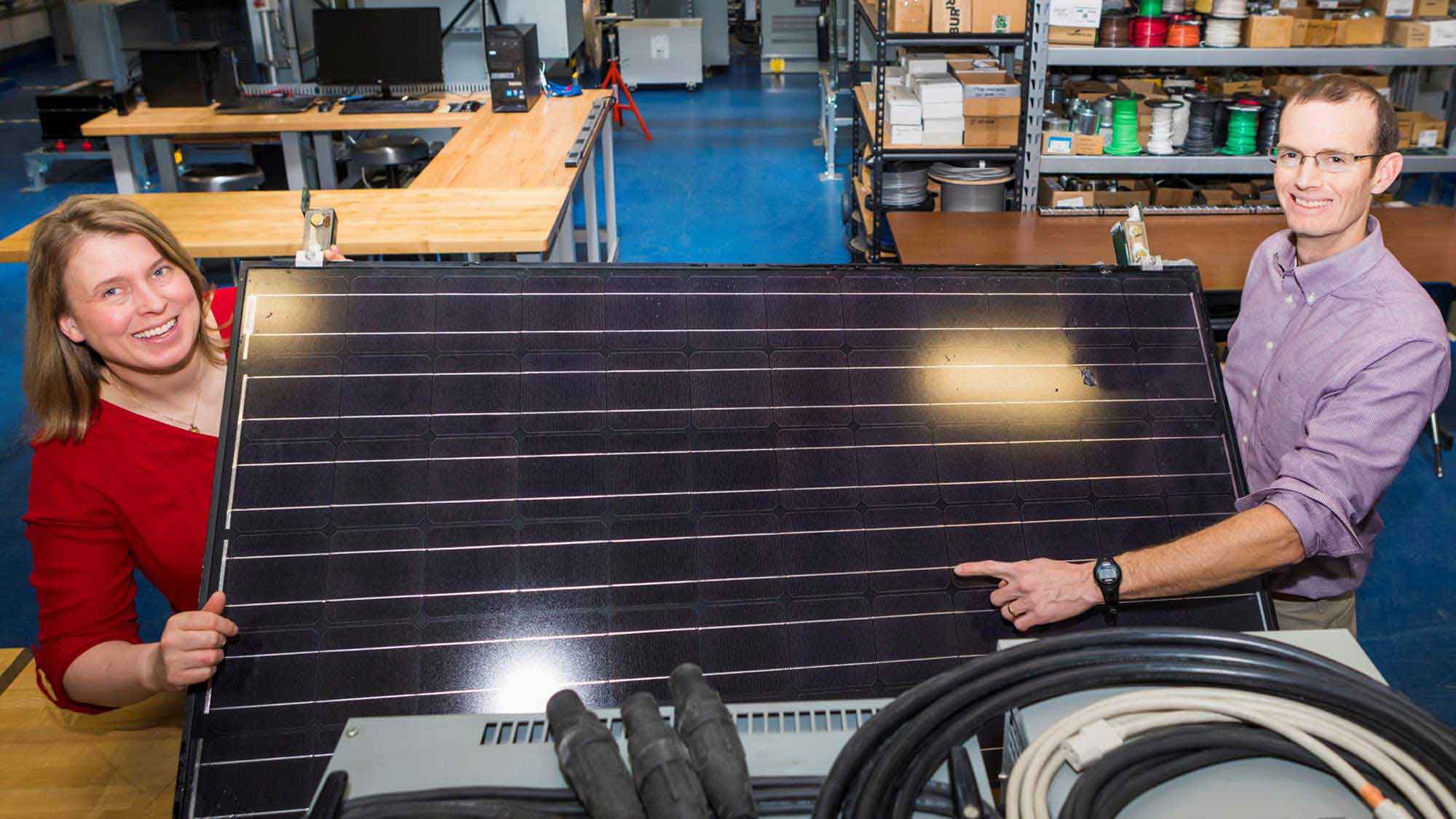
And that is only one project among many. For example, as part of ACEP’s Utility Student Internship Program, UAA’s Dr. Getu Hailu and undergraduate Matt Moses built tools to analyze heating and solar energy data for high-efficiency homes in Utqiaġvik. Dr. Mohammad Kapourchali from UAA’s Department of Electrical Engineering frequently supports ACEP’s efforts related to power systems integration and electric vehicles. And several faculty members from the UAA Department of Computer Science have conducted research on edge-computing and machine learning techniques that can be used for renewable resource forecasting.
The list of collaborations goes on and on.
“These joint efforts have given rise to an extremely collaborative and inclusive atmosphere at ACEP,” Whitney said. “We go beyond institutional boundaries to bring the best minds and skill sets together to solve Alaska’s sustainable energy challenges.”
Small pieces
Any single research project — and any single researcher — are only small pieces of a large and complex puzzle. Henry Toal’s contributions to UAF’s Alaska Center for Energy and Power, along with the contributions of other UAA, UAF and UAS researchers, are all part of the effort to make Alaska a more sustainable place and Alaskans a more resilient people. Through collaborations across the entire University of Alaska system, ACEP moves closer every day toward achieving those goals.
 "Community of collaboration: UAA and UAF partner up on energy research" is licensed under a Creative Commons Attribution-NonCommercial 4.0 International License.
"Community of collaboration: UAA and UAF partner up on energy research" is licensed under a Creative Commons Attribution-NonCommercial 4.0 International License.










